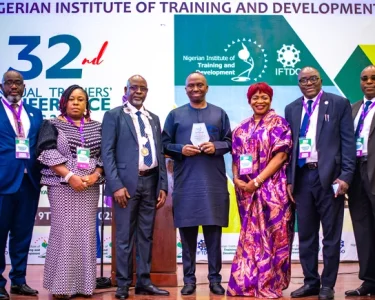The Nigerian Communications Commission (NCC) is taking steps to protect the West African country’s telecoms sector from cyber-attacks and is developing a cyber security strategy.
Executive Vice Chairman of the NCC, Dr. Aminu Maida, made the announcement at a regulatory meeting on cyber security framework development held in Lagos on Wednesday.
This initiative comes as Africa faces mounting cyber security risks such as ransomware and data breaches, and there is a growing demand for more robust security conversations at the board level.
Analysts have warned that as the cyber threat landscape becomes increasingly complicated, it’s vital for businesses, cyber security leaders, and teams to stay ahead.
In Nigeria, Maida noted that the telecom industry’s rapid rise from under 500,000 lines in 2001 to over 172 million active subscribers and 141 million internet users now, raises the possibility of attacks.
He emphasised that the rise of the industry, which has propelled economic progress, has increased vulnerability to cyber-attacks, with government infrastructure becoming a popular target for cyber-criminals.
“To address these risks, the NCC is developing a national cyber security framework designed to strengthen protections across the industry,” he stated.
According to Maida, the framework aims to develop a unified and resilient cyber security posture, improve telecom infrastructure security, and protect consumer data and privacy.
Furthermore, the framework seeks to develop industry-wide expertise in anticipating, identifying, responding to, and recovering from cyber incidents while proactively preventing future threats.
Maida cited a UN Economic Commission for Africa report, stating that a 10% increase in cybersecurity maturity might result in significant per capita GDP development across Africa.
Further, the proposed framework will define baseline cyber security criteria for telecom operators, such as incident reporting, risk management, information exchange, and engagement with regulatory bodies.
Existing regulations, such as the Nigerian Data Protection Act of 2023 and the Cybercrime Prevention Act of 2015, will lead the endeavour, requiring better cyber security measures for essential industries such as telecoms.
Babagana Digima, head of the Cybersecurity Framework Development Committee, noted that the project aims to streamline cyber security operations and close major gaps in Nigeria’s telecom sector.
He emphasised the importance of doing a baseline assessment to analyse the present status of cyber security posture before introducing additional protections, underlining that cyber security is no longer an option, but rather a requirement.
Dr. Kazeem Durodoye, CEO of Cybernovr, emphasised the significance of adapting the framework to growing technologies such as Open RAN, network virtualisation, and emerging threats such as AI-powered cyber-attacks and quantum-level cryptography.
The framework will divide telecom licensees into levels based on their risk exposure, providing greater control for operators handling sensitive data or essential infrastructure.
A draft version will be distributed to the industry for review in the coming weeks.
ITWeb




